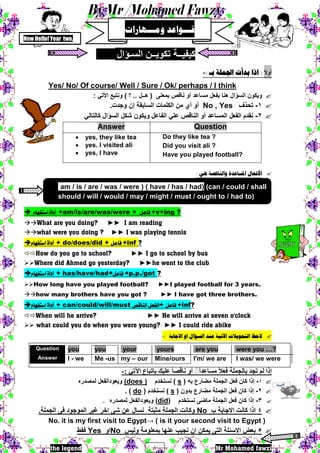The document provides guidelines for forming question sentences in English. It discusses starting a question with words like "I think" and replacing them with "do/does/did" followed by the subject and base form of the verb. It also covers using auxiliary verbs like "am/is/are/was/were" and "have/has/had" in questions. Examples are given for different question structures like yes/no questions, wh- questions, and questions using phrases like "which" and "what time". The document emphasizes remembering exceptions to the general rules for forming questions.



















































